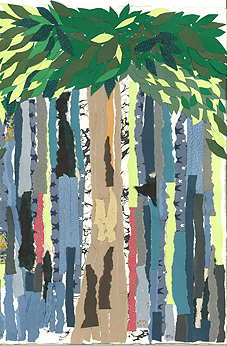Rethinking the Global SouthMukoma Wa Ngugi
The project started innocently enough – I read Satya Mohanty’s interview, “Realism, Indian Literature, and World Literature: A Conversation with Satya P. Mohanty,“ which was commissioned by the U.S. journal South Asian Review but was first excerpted in India’s popular national magazine, Frontline, as “Literature to Combat Cultural Chauvinism.“ I was struck by how Mohanty’s discussion of chauvinism in Indian literature was relevant for what in the African context is cultural nationalism – where the search for one’s singular identity, point of origin, or place in the world often turns one’s culture into a fortress within which no contradictions exist. Mohanty also talked about the politics of language and translation not just between Indian languages and English but also between Indian languages. The question of language, whether to write in an African language or English or French, is very central to the African literary tradition. I shared the interview with my father, Ngugi Wa Thiong’o, whose recent book, Globalectics: Theory and the Politics of Knowing also decries, in a similar way, the celebration of mono-knowledge. Ngugi responded to the interview with enthusiasm, saying that he wanted to write a response. We sent that response to India’s Frontline Magazine. Then came the idea – why not ask other scholars and writers from different parts of the Global South to respond to the interview through the lens of where they are positioned? Several writers and scholars welcomed this opportunity. This was followed by the idea – why then don’t we ask different journals and magazines in different parts of the world to carry the responses as part of creating a public and international discussion? And finally the question: why not formalize this new process into a South-to-South project to be housed at Cornell University? The amount of support from the editors of various journals has been tremendous. In his reply to the initial query, Daniel Simon from World Literature Today said in part that “The cross-cultural aspect of the project is also something that would find a natural home in the pages of WLT“ – something that was echoed by the other editors. As of writing this, World Literature Today (United States), Frontline (India), Sunday Nation (Kenya), National Mirror (Nigeria), Wasafiri (UK), Kwani? (Kenya), Africa Review (Eastern Africa), St. Petersburg Review (United States), Pambazuka News (UK, South Africa, Senegal, Brazil), Chimurenga (South Africa), China Review International (Hong Kong), and of course the Journal of Contemporary Thought (India) all participating. The essays in response to the Mohanty interview in a lot of ways encapsulate our goals of being in relation through honest critical dialogue rather than exchanging intellectual pleasantries. Ngugi’s essay, “Asia in My life,“ that first appeared in the Frontline, National Mirror, Sunday Nation, Pambazuka and World Literature Today is not about discovering Asia, but about the realization of just how much Asia and Asians have been a part of his biography as well as of Africa’s history of struggle. He writes: “After I wrote my memoir of childhood, Dreams in a Time of War, published in 2006, I looked back and saw how much India had been an equally important thread in my life. I had not planned to bring out the Indian theme in my life: but there it was, staring at me right from the pages of my narrative. The thread starts from home, through school, college and after.“ India is part of what makes him a composite being. If Ngugi’s essay is personal, Duncan Yoon’s essay, “The Global South and Cultural Struggles: On The Afro-Asian People’s Solidarity Organization“ is an analysis of the politics and contradictions surrounding earlier attempts at solidarity between Africa and Asia. The writers’ bureau, the cultural front of the AAPSO would meet its demise at the hands of cultural and political chauvinists, but the efforts Yoon described are part of an inspiring history of third world solidarity. Pages: 1 2 3 4 5 6 |
Essays in this ForumRethinking the Global South
by Mukoma Wa Ngugi From Indian Literature to World Literature: A Conversation with Satya P. Mohanty by Rashmi Dube Bhatnagar and Rajender Kaur Asia in My Life by Ngugi wa Thiong'o The Global South and Cultural Struggles: On the Afro-Asian People’s Solidarity Organization by Duncan Mceachern Yoon The Fault Lines of Hindi and Urdu by Sanjay Kumar Reframing Colonialism and Modernity: An Endeavour through Sociology and Literature by Gurminder K. Bhambra Varieties of Cultural Chauvinism and the Relevance of Comparative Studies by Tilottoma Misra Literature to Combat Cultural Chauvinism: A Response by Shivani Jha Is There an Indian Way of Thinking about Comparative Literature? by E. V. Ramakrishnan Modernity and Public Sphere in Vernacular by Purushottam Agrawal West Indian Writers and Cultural Chauvinism by Jerome Teelucksingh Oral Knowledge in Berber Women’s Expressions of the Sacred by Fatima Sadiki |
